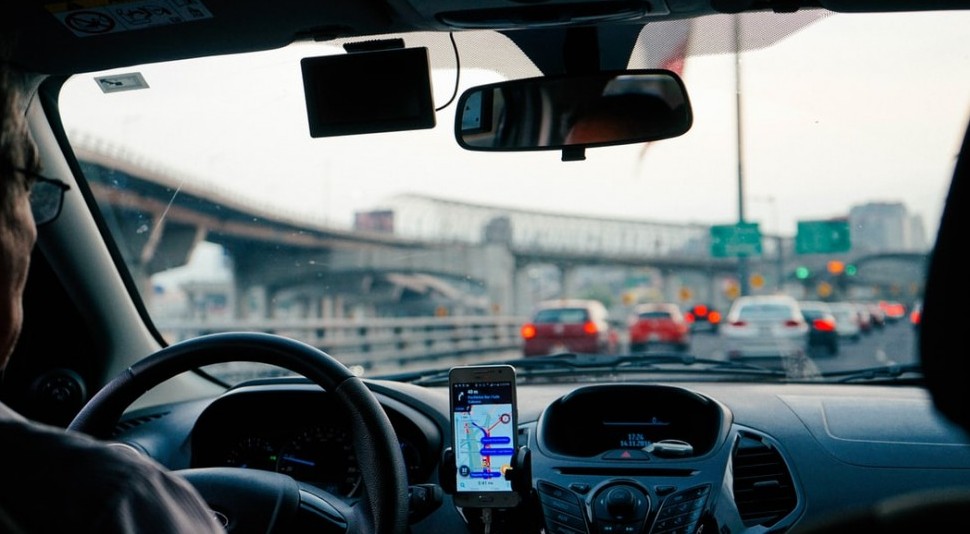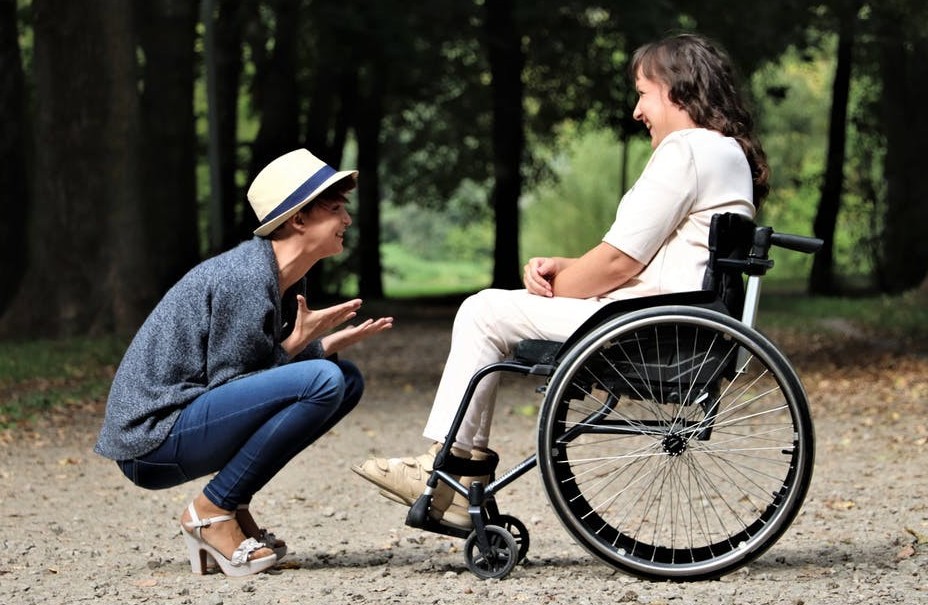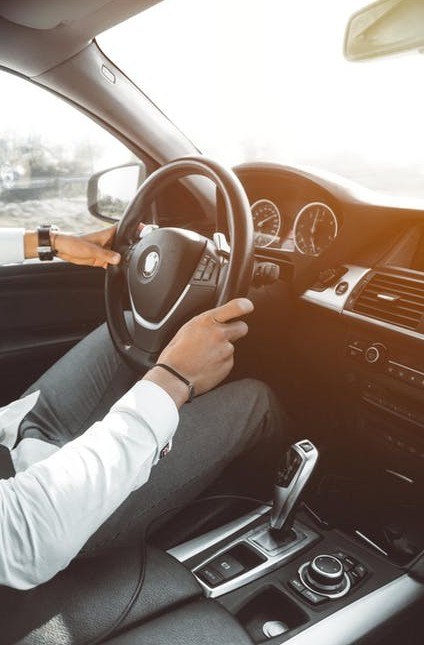Huh? What does your driving have to do with rebuilding your life after a trauma or loss? Well, for some it was someone’s driving that caused their trauma or loss. So how’s your driving? There can be both traumatic events and losses related to how people drive. Maybe you’ve been on the receiving end of that too like I have. When those events occur, you find yourself rebuilding your life or dealing with the loss of a vehicle, loss of work if injured, loss of physical or cognitive abilities (temporarily or long-term), and maybe even the loss of a loved one. If you’ve ever had injuries from an auto accident caused by someone else, then you might give more thought to how you are driving because you know that it can take a while to rebuild your life after being hit by another driver. Sometimes it can take weeks or months for injuries to heal, and other times it can cause lifelong changes that never go away! Yes, our driving does impact everyone around us. So… how’s your driving?
Let’s take a closer look at your driving. In this post, we’ll consider the following topics:
–Why Does Your Driving Matter?
–Who do You Drive?
–Driving Safely

Why Does Your Driving Matter?
Why talk about this? Your driving affects you, your passengers, other drivers, and pedestrians. Think about that. According to MechanicBase.com depending on what you’re driving, you may have in your hands an automobile weighing 2600 lbs and up to 6600 lbs for a large SUV. According to Wikipedia, tractor-trailers may weigh anywhere from “34,000 to 80,000lbs.” That is a lot of power and a lot of responsibility! Yes, how you drive does matter!
The way people drive can affect others physically and psychologically. How many times has someone’s driving irritated you when on the road? Maybe you got emotionally upset with them which might raise your blood pressure or maybe their driving shook you up and sent adrenaline racing through your body. How healthy is it to be around unpredictable drivers like that?

Who Are You Driving?
How is your driving when you’re alone? Do you drive differently when you have passengers or do you have more distractions? Whether I have passengers or not, I prefer to focus on reaching my destination safely. When I work on safe driving, it helps the surrounding drivers to also get safely to where they are going. I once rode with a driver who talked non-stop and was oblivious to other drivers, their turn signals, and the cars and tractor-trailers around us. That was not a pleasant ride! There were near misses and angry drivers around us from the way this person was driving. That’s not safe!
There was also the experience (before cell phone laws were passed) where a co-worker was driving while trying to handle calls on two different cell phones. Talk about near misses! There were sudden stops, other drivers honking at the person, brakes screeching around us, and more. If a phone was dropped, we were likely to be riding on the shoulder of the road too. That’s too much drama and stress! Who needs it?
With all the focus required to safely reach our destinations, it’s even more important when transporting individuals with traumatic brain injuries and other types of traumas or cognitive impairments. Often their injuries came from being in accidents. So they need a calm, quiet, trustworthy ride that doesn’t trigger their past traumas. If they haven’t been in auto accidents, maybe they served in the military or were first responders, experienced domestic violence, kidnapping, or something else. Any of those experiences may make them nervous when someone is driving.
Additionally, it’s been my experience in working with older individuals who are experiencing some form of cognitive decline like one of the many dementias, that they may also have issues with depth perception and decreased visual capabilities. Depending on what part of the brain is injured, individuals with traumatic brain injuries may also have similar issues. To them, the cars, tractor-trailers, and pedestrians are closer to us than they really are and it may even cause them to shout for the driver to watch out when it’s perfectly safe and non-threatening! They have to be reassured and the driver has to take all of this into consideration when transporting them so they are not traumatized from riding in the car when going for a nice ride on a sunny day.
One more thought about who you are driving. It makes sense that we should be considerate of our passengers and the possibility that they have had Post-Traumatic Stress Disorder (PTSD) from any of the traumatic events in their lives. If you know there’s a history of auto accidents or military service or other traumas, it would be helpful for your passengers to kindly factor that in when they are in your car. That way, they arrive at their destinations in a calmer state of mind and not triggered into a panic attack!

Are You Driving Safely?
How safe is your driving? The photo above with the guy texting is fast becoming a thing of the past because so many individuals have caused accidents and fatalities or have lost their own lives due to texting and driving. So this is definitely my plea with you to drive hands-free and undistracted so you arrive safely at your destination. States now are passing hands-free driving laws, so if your state hasn’t done so yet, it will probably be coming soon. Below I’ve listed some tips for safe driving. Granted you may be doing these already, but if not, they are worth implementing right away.
- always wear your seat belt
- always focus only on the road
- leave a dropped item on the floor while driving until it’s safe to retrieve it
- eliminates distractions as much as possible
- avoid going over 65mph so you can better react to unexpected incidents and objects
- leave ample room between the front of your car and the bumper of the car in front of you so if they stop quick you will be more likely to get stopped
- go slower when it’s raining, or when the roads are wet, snow or ice-covered
- always use your turn signals well in advance so other drivers know what you’re doing
- take a defensive driving course if you’ve never taken one
- always allow plenty of room on all sides of tractor-trailers
- never cut off a tractor-trailer because they are much harder to get stopped than smaller vehicles; if they have to hit the brakes hard it can cause their load to shift which could kill the driver or cause a major accident
- avoid using your phone for any reason while driving because it’s too much of a distraction cognitively, physically, and possibly emotionally
- be kind to others
- avoid road rage because there can be deadly consequences
- keep up with the regular maintenance for your vehicle so you stay safe while driving

Conclusion
Hopefully, our discussions about why your driving matters, who you’re driving and whether you’re driving safe will help you do a self-check to see if there’s anything you might need to change. It seems like we can always improve our skills. We simply need to stay teachable so we can learn and change and better serve others who are rebuilding their lives.
Thank you for reading my post. Please share your thoughts or experiences on this topic. I look forward to reading your comments!
Your Rebuilding Lives Coach,
Colleen

I’ve watched the most dangerous drivers on earth drive their vehicles with no regard to the truths you’ve shared here. Here in the Philippines, our government as enacted new laws that will penalize people for distractive driving like using phones while driving or having a meal while driving. They are so dangerous but still people do it especially in places where there are no cameras or no authorities would see them. I wish our drivers here realize the seriousness of the situation and the possible implication if something really go wrong along the road. I’m sharing this on social media so more Filipino drivers will be aware of these.
Hi Gomer… there’s a growing trend of distracted driving and it needs to stop. However, despite hands-free driving laws with penalties, I’m still seeing people in automobiles and in tractor-trailers texting and holding their phones while driving. Even hands-free driving can be distracting, so I don’t do it. I’m on the interstate highways a lot and I’m amazed at the number of people who are messing with their phones or eating while speeding down the highways at 70 mph or higher. It’s unreal! I’ve stood at the bedsides of clients who received terrible brain injuries from auto accidents. Unfortunately, some never recovered. It’s sad for anyone to lose his life b/c of a text message or a phone call. Thank you for taking the time to read my post, leave a comment, and share this post on social media. Stay safe on those roads! 🙂
You’re right, our driving does matter! That said, I’ve always been a cautious driver, alone and with people in my car. I’m just a worrier, so I can’t help but drive safely! That said, I HAVE glanced at my phone while driving, though I’ve never texted, thankfully! But still, I’ve had a few run-ins with people who didn’t care about driving safely and it nearly killed me. So thanks for this post.
Bless your heart, Selenity. It sounds like you learned about being a bad driver as a result of riding with individuals who weren’t careful about how they drove. Yikes! It’s so psychologically and physically stressful to ride with distracted drivers. I’m glad you weren’t in an accident but that you used it to improve how you drive. Bravo to you for doing that!!! Thank you for stopping by and sharing your experiences.
This is a very important article. Indeed everyone’s driving affects every other user on the road, and sometimes we do not think about this until something awful has happened as a result of our driving. Great pointer there on minding how we drive especially when we carry people. It would be very ignorant to get other passengers to re-live their traumatic experience if we are reckless. Thank you for this reminder on our driving. Great article.
You’re right, Carol, I don’t want my driving to trigger someone else’s flashbacks about their accidents. It can be very trying to ride with a driver who is oblivious and insensitive to what another person has gone through in an auto accident. It’s best if we can just drive safely whether we are with or without passengers. That would solve a lot of issues, don’t you think? Thank you for reading my post and sharing your thoughts.
When I was younger I was in a minor car accident on the entrance to the freeway near Puyallup, WA. My girlfriend was driving and her little car got hit on the right rear area and knocked us onto the sidewalk. Even though it wasn’t that bad I had messed up my neck and back and spent 6 months having to see a chiropractor once a week. My girlfriend luckily was fine physically but emotionally she got a bit frayed around the edges. I as well had a some minor PTSD symptoms months later when my father was badly rear ended and he not only had whiplash hut the back of his head smashed the glass behind him as he was driving a F150 v6. He suffered memory loss and even 12 years later he still has memory issues. Anyways, thank you for the very informative article.
Thank you for taking the time to share your experiences! Whiplash and PTSD from auto accidents can really take their toll on someone for longer than anticipated. I’m sorry to hear that your father still has memory issues related to his accident. I wish drivers would be more careful about focusing on their driving and not fidget with distractions. You, your girlfriend, and your father have all been impacted by the accidents that happened and none of you have any idea how much longer the residual symptoms may last. I hope that each of you can totally heal from all of the traumas of your accidents. 🙂
These are some great tips and I know from experience at how important they are. I am a medical transportation driver and I drive people, mostly senior citizens and those with mobility problems due too injuries, to and from their doctor and hospital appointments. In order to get this job I have to pass several tests and one is a defensive driving test.
I do drive differently when I am by myself but it is still safe. When I have people in my vehicle I become even safer, especially since in this area the traffic can quickly change from smooth flowing to stop and go. For those times that I have an ongoing conversation with my passengers that I regularly transport, I always keep my eyes forward. Safety of my riders is my number one priority.
Robert, you sound like a safe driver and we sure need more drivers like you! Both your client and traffic situations sound similar to those that I have when transporting clients. We can’t go wrong with eyes forward. Unfortunately, when individuals have been injured in an auto accident, it can be very difficult for them to trust someone else’s driving again. Sometimes those who have been injured prefer to do the driving themselves so they feel safer. That may not work if their accident resulted in a bad brain injury or some other disability. Needless to say, it can be quite challenging to overcome an auto accident. Thank you so much for sharing your experiences and insight.